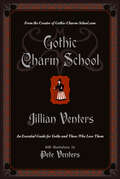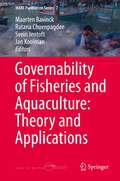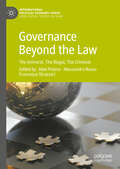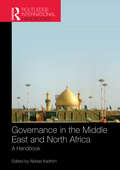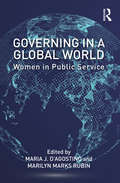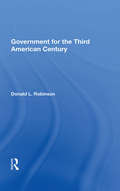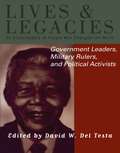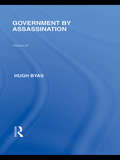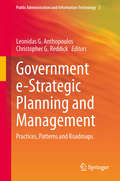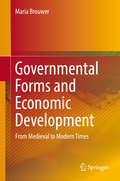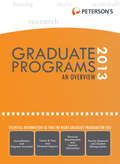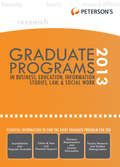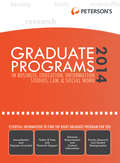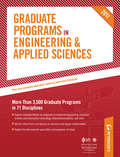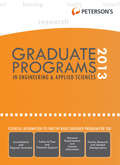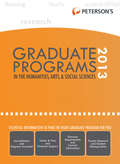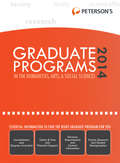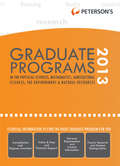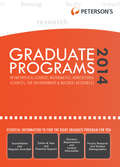- Table View
- List View
Gotcha Capitalism: How Hidden Fees Rip You Off Every Day and What You Can Do About It
by Bob SullivanWhat is Gotcha Capitalism? Coughing up $4 fees for ATM transactions. Iron-clad cell phone contracts you can't get out of with a crowbar. Paying big bucks for insurance you don't need on a rental car or forking over $20 a day for supposedly "free" wireless internet. Every day we use banks, cell phones, and credit cards. Every day we book hotels and airline tickets. And every day we get ripped off. How? Here are just a few examples of how big business can get you: * You didn't fill up the rental car with gas? Gotcha! Gas costs $7 a gallon here. * Your bank balance fell to $999. 99 for one day? Gotcha! That'll be $12. * You miss one payment on that 18-month same-as-cash loan? Gotcha! That'll be $512 extra. * You're one day late on that electric bill? Gotcha! All your credit cards now have a 29. 99% interest rate. But not for much longer. InGotcha Capitalism, MSNBC. com's "Red Tape Chronicles" columnist Bob Sullivan exposes the ways we're all cheated by big business, and teaches us how to get our money back-proven strategies that can help you save more than $1,000 a year. From the Trade Paperback edition.
Gothic Charm School: An Essential Guide for Goths and Those Who Love Them
by Jillian VentersTurn people’s expectations on their heads by being a Goth with good manners with this fully illustrated guidebook to day-to-day Goth living.There’s more to being a Goth than throwing on some black velvet, dyeing your hair, and calling it a day (or a night). How do you dress with morbid flair when going to a job interview? Is there such a thing as growing too old to be a Goth? How do you explain to your grandma that it’s not just a phase?Jillian Venters, a.k.a. “the Lady of the Manners,” knows how to be strange and unusual without sacrificing politeness and etiquette. In Gothic Charm School, she offers the quintessential guide to dark decorum for all those who have ever searched for beauty in dark, unexpected places, embraced their individuality, and reveled in decadence . . . and for families and friends who just don’t understand.
Gothic Horror: A Guide for Students and Readers
by Clive BloomThis highly accessible anthology of Gothic writings and criticism provides an essential guide to the genre. The second edition of this critically acclaimed book has been thoroughly revised to include material from the early gothic and a fresh set of contemporary essays, with a supporting timeline and thought provoking introductory material.
Governability of Fisheries and Aquaculture: Theory and Applications
by Jan Kooiman Svein Jentoft Ratana Chuenpagdee Maarten BavinckFollowing from Fish for Life - Interactive Governance for Fisheries (Kooiman et al., 2005), which presents an interdisciplinary and intersectoral approach to the governance of capture and aquaculture fisheries, this volume pursues what interactive governance theory and the governability perspective contribute to the resolution of key fisheries problems, these include overfishing, unemployment and poverty, food insecurity, and social injustice. Since these problems are varied and can be felt among governments, resource users and communities globally, the diagnosis must be holistic, and take account of principles, institutions, and operational conditions. The authors argue that 'wicked problems' and institutional limitations are inherent to each setting, and must be included in the analysis. The volume thereby offers a new lens and a systematic approach for analysing the nature of problems and challenges concerning the governance of fisheries, explores where these problems are situated, and how potential solutions may be found. "It now seems clear that the crisis in the world's fisheries [is] a much larger and more complex problem than many had imagined. Yet, examining it through the lens of governability may offer the best hope for alleviating it--as well as alleviating similar crises in other social systems." James R. McGoodwin (Professor Emeritus, University of Colorado)
Governance Beyond the Law: The Immoral, The Illegal, The Criminal (International Political Economy Series)
by Abel Polese Alessandra Russo Francesco StrazzariThis volume explores the continuous line from informal and unrecorded practices all the way up to illegal and criminal practices, performed and reproduced by both individuals and organisations. The authors classify them as alternative, subversive forms of governance performed by marginal (and often invisible) peripheral actors. The volume studies how the informal and the extra-legal unfold transnationally and, in particular, how and why they have been/are being progressively criminalized and integrated into the construction of global and local dangerhoods; how the above-mentioned phenomena are embedded into a post-liberal security order; and whether they shape new states of exception and generate moral panic whose ultimate function is regulatory, disciplinary and one of crafting practices of political ordering.
Governance in the Middle East and North Africa: A Handbook (Routledge International Handbooks Ser.)
by Abbas KadhimGovernance in the Middle East is topic of interest to scholars, activists and policy makers. The currently proposed book is intended to present the first comprehensive framework of the question of governance in the Middle East in its various forms and manifestations: political, economic, and government performance. This study will supply the context that is missing in the existing literature on, perhaps, the last bastion of authoritarianism in the world. Proposed Contents This book will be structured into two parts: Part I (Chapters 1-11) provides some theoretical background and analyzes the patterns and challenges of governance in the Middle East, providing some global context; Part II (12-Conclusion) will examine specific cases in selected countries and regions in the Middle East. Part I: Theory and Context Chapter 1 will be an introduction describing the main aspects of the book and highlighting the main points made by the contributors. Chapter 2 will present the theoretical dimensions of governance and review the "state of the discipline" and the latest trends in the literature on governance. The author of this chapter will be an authority in the subject of governance, but does not have to be necessarily a Middle East scholar. Chapter 3 will examine the general political trends in the Middle East and provide a historical background: nation-state formation, colonial and postcolonial experiences in the Middle East and the nature of the Middle Eastern political environment at the present time. Chapter 4 will look into the economic aspects of governance in the Middle East and contextualize the economic challenges and deficiencies affecting the region. Chapter 5 will examine the areas of success and failure in government performance in the region and the aspects of human development. Chapter 6 will look into the role of religion in shaping the governance in the Middle East. After all, most Middle Eastern governments declare Islam as the State religion, while a few consider Islam the source of governance and legislation (e.g. Saudi Arabia and Iran). Chapter 7 will shed light on the sectarian division among Muslims (Shi‘a vs. Sunnis) and the significance of this division for the governance, particularly in countries where the ruling groups belong to a different sect than the governed, such as Bahrain, Saudi, Kuwait and Lebanon. Chapter 8 will examine relation between the state of governance in the Middle East and the progress of human rights, or lack thereof. The Middle East remains one of the most troubling regions on human rights and the respect for human dignity. All of the region’s governments are heavily implicated in very serious violations of the most basic in human rights. Chapter 9 will focus on the status of women in the Middle East and the governmental performance in the region in relevance to women rights and status. The recent years have witnessed many positive changes in this regard, but there remains a lot of work to be done, which is going to be outlined in this chapter. Chapter 10 will look into the role of oil and other natural sources in shaping the economic and political performance of Middle Eastern governments. Also, it will shed light on the various ways these governments distribute the revenues (rents) from these resources and how they use them, or don’t, in the development of their countries or, in most cases, on the military and state oppressive machine. Chapter 11 will examine the role of international organizations and trade agreements on the performance of governments and whether or not such factors influence or shape governance in the region. It is well-known that Turkey has changed many of its laws and social policies in response to the demands of EU members and in hopes of being admitted into the EU. The chapter will elaborate on this and similar cases thr
Governing Digitally Integrated Genetic Resources, Data, and Literature
by Tom Dedeurwaerdere Paul F. Uhlir Reichman, Jerome H. and Uhlir, Paul F. and Dedeurwaerdere, Tom Jerome H. ReichmanThe free exchange of microbial genetic information is an established public good, facilitating research on medicines, agriculture, and climate change. However, over the past quarter-century, access to genetic resources has been hindered by intellectual property claims from developed countries under the World Trade Organization's TRIPS Agreement (1994) and by claims of sovereign rights from developing countries under the Convention on Biological Diversity (CBD) (1992). In this volume, the authors examine the scientific community's responses to these obstacles and advise policymakers on how to harness provisions of the Nagoya Protocol (2010) that allow multilateral measures to support research. By pooling microbial materials, data, and literature in a carefully designed transnational e-infrastructure, the scientific community can facilitate access to essential research assets while simultaneously reinforcing the open access movement. The original empirical surveys of responses to the CBD included here provide a valuable addition to the literature on governing scientific knowledge commons.
Governing in a Global World: Women in Public Service
by Marilyn Marks Rubin Maria J. D’AgostinoGoverning in a Global World captures the panorama of women governing around the world. Even though the modern era marks history’s greatest advancements for women, worldwide they hold fewer than 30 percent of decision-making positions and are often missing from negotiating tables where policies are made and conflicts resolved. The opening chapters present trends and context for studying women in public service by focusing on path-setters across the globe, the status of women in the world’s executive and legislative bodies, and their participation in public service across several nations. Later chapters examine power, leadership and representation of women in public service, with several chapters looking at women governing from a regional perspective in the Middle East, Sub Sahara Africa, Latin America, and China. The final chapter presents empirical evidence that shows how policies to increase women’s representation in the public arena reduce gender inequality more than any other policy intervention. Taken together, the chapters illustrate the worldwide importance of, and challenges to, promoting gender equality and women governing.
Government For The Third American Century
by Donald L RobinsonThis book is a primer for debate about the fitness of the American political system as it moves toward the twenty-first century. It focuses on structural matters: the electoral process, the major institutions of the federal government and how they interact, and what we can do when they perform ineffectively or abuse their powers. Part 1 presents a
Government Leaders, Military Rulers and Political Activists: An Encyclopedia Of People Who Changed The World (Lives And Legacies Ser. #Vol. 3)
by David W. Del TestaIn each volume, an introductory essay outlines of history of the disciplines under discussion, and describes how changes and innovations in these disciplines have affected our lives. The biographies that follow are organized in an A-Z format: each biography is divided into a "life" section describing the individual's life and influences and a "legacy" section summarizing the impact of that individual's work throughout history. These biographies cover a diverse group of men and women from around the globe and throughout history.Franklin Delano Roosevelt, Mao Tse-tung and Genghis Khan are among the 200 well-known historical figures included in this volume. Examples of other lesser-known, yet important, individuals covered in this work are: Gustavas Adolphus, Swedish empire creator; Hatshepsut, queen of ancient Egyptian dynasty; and Jean Jaurès, French socialist leader and pacifist. Each synopsis provides information on each individual's enduring impact on the common understanding of fundamental themes of human existence.
Government by Assassination (Routledge Library Editions: Japan)
by Hugh ByasWritten by someone who spent twenty-three years as a journalist in Japan, this book describes the political and military aspirations of Japan at a tumultuous period of twentieth century history. The book examines the workings of the Japanese government and discusses the role of the military in shaping political ideals: ideals which were a compound of Marxism and National Socialism, transformed for Japanese uses and combined with fanatical racial, national and semi-religious obsessions.
Government e-Strategic Planning and Management
by Christopher G. Reddick Leonidas G. AnthopoulosVarious e-strategies have been developed since the late '90s in an attempt to describe the governmental vision for administrative and for societal change, the objectives and priorities with regard to the development of the Information and Communication Technologies (ICT) at national and at supranational levels. Terms such as the European "Information Society", the U. S. "Information Highways" and the Korean and Chinese "Informatization" try to describe social transformation that occurs due to the ICT, and to determine means with which governments will capitalize the ICT to improve social life and to support economic growth. This book focuses on the e-strategic management approaches that are followed worldwide, addresses the gaps that appear between e-strategic updates, and presents alternative strategic management methods adopted or to use strategic management methods as a means to describe the e-strategic evolution in their geographic areas. Each chapter evaluates e-strategic management approaches, to define multi-criteria decision-making systems for e-strategic transformation and Indicative methods for e-strategic analysis. This book also illustrates experiences from national and supranational cases, which come from different geographic areas regarding e-strategic planning and management, and demonstrates e-strategic initiation and development across different countries and continents, and the association between policies and ICT. It also seeks to perform a systematic analysis of various representative cases, in order to capture the realized e-Strategic transformation. It will be of interest to scholars and policy-makers in public administration, management, and information technology.
Governmental Forms and Economic Development
by Maria BrouwerThis book investigates the performance of economic development under different forms of government, ranging from autocratic states to liberal democracies. Starting with a critical review of the literature on social and economic development, including the works of Frank Knight, Max Weber, Joseph Schumpeter and Peter Drucker, it offers a historical analysis of the expansion of markets, cities and trade in medieval Europe, and the monopolization of trade by the emerging European nation states. The book also presents a case study on the rise and decline of the Dutch Republic, discusses topics such as the disadvantages of the central direction of economic organizations, and federal decentralization as a model for promoting growth and investment, and illustrates how successful companies like Semco and Google are building on centuries-old management principles.
Grace's Guide: The Art of Pretending to Be a Grown-up
by Grace Helbig"One of the sharpest, funniest voices on YouTube" (Forbes), comedian Grace Helbig offers an irreverent and illustrated guide to life for anyone faced with the challenge of growing up.Face it--being a young adult in the digital era is one of the hardest things to be. Well, maybe there are harder things in life...but being an adult is difficult! So Grace Helbig has written a guide that's perfect for anyone who is faced with the daunting task of becoming an adult. Infused with her trademark saucy, sweet, and funny voice, Grace's Guide is a tongue-in-cheek handbook for millennials, encompassing everything a young or new (or regular or old) adult needs to know, from surviving a breakup to recovering from a hangover. Beautifully illustrated and full-color, Grace's Guide features interactive elements and exclusive stories from Grace's own misadventures--like losing her virginity solely because her date took her to a Macaroni Grill--and many other hilarious lessons she learned the hard way. Amusing and unexpectedly educational, this refreshing and colorful guide proves that becoming an adult doesn't necessarily mean you have to grow up.
Gracious: A Practical Primer on Charm, Tact, and Unsinkable Strength
by Kelly Williams BrownSo you’re adulting. Now what? New York Times bestselling author of Adulting: How to Become a Grown-Up in 468 Easy(ish) Steps Kelly Williams Brown is here to tell you what, with her funny, charming guide to modern civility in these—yes, we'll say it—rather uncivil times.Graciousness is practicing the arts of kindness, thoughtfulness, good manners, humanity, and, well, basic decency. It’s not about memorizing every rule of traditional etiquette (though there is something to be said about a lovely hand-written invitation) or being the perfect hostess. It’s about approaching the world with compassion, conviction, and self-confidence—and it makes all the difference, whether you're at a Fancy Schmancy Intimidating Work Occasion or at the convenience store. Gracious provides tips to help you deal with the people and circumstances that challenge all of us (pushy relatives, internet trolls), and thoughtful discussions on being the highest version of yourself. Graciousness, at its heart, is the ability to be truly present to the humans around you, to face the world with a generous heart and a core of strength that’s never corroded. Even when you get rude comments from Internet strangers (hot tip: you don’t give a lot of credibility to someone screaming obscenities at you on the street, so why do it online?)We can’t control the world, or other humans, or even how we feel in a given moment. The only thing we can control is our words and actions, and when we act deliberately and with kindness, it makes everything better.
Gradspot.com's Guide to Life After College
by David Klein Stuart Schultz Chris Schonberger Tory HoenWhether you're searching for your first job or apartment, navigating the treacherous waters of office politics, or just trying to figure out how to file your tax return, Gradspot.com's Guide to Life After College tackles the most common issues facing twentysomethings as they find their feet in the â œreal world.â Authors Chris Schonberger, Stuart Schultz, David Klein, and Tory Hoen (twentysomethings themselves) have been through it all before, and they maintain a sense of humor about their triumphs and missteps along the way. In addition to sharing their own experiences and anecdotes, they have polled hundreds of recent grads and consulted topic experts to give readers the information they need, to find their feet beyond campus. Packed with indispensable tips, candid advice, and humorous dispatches from early adulthood, this easy-to-use guide has everything you need to know but didn't learn in college!Topics include: Finding an Apt, Job Hunting, Healthcare, Credit, Top Recent Grad Cities, Cars, Student Debt, Saving & Investing, Office Etiquette, Networking, Dating, Travel, Cooking, Moving Home, The "One-Year Rut", 401(k)s, and more.
Graduate & Professional Programs 2013: An Overview 2013
by Peterson'S PublicationsGraduate & Professional Programs 2013: An Overview contains nearly 2,400 university/college profiles that offer valuable information on graduate and professional degrees and certificates, enrollment figures, tuition, financial support, housing, faculty, research affiliations, library facilities, and contact information. <P><P>This graduate guide enables students to explore program listings by field and by institution. Two-page in-depth descriptions, written by administrators at featured institutions, give complete details on the graduate study available. Readers will benefit from the expert advice on the admissions process, financial support, and accrediting agencies.
Graduate Programs in Business, Education, Health, Information Studies, Law & Social Work 2013 (Graduate And Professional Programs Ser. #6)
by Peterson'SPeterson's Graduate Programs in Business, Education, Health, Information Studies, Law & Social Work 2013 contains a wealth of info on accredited institutions offering graduate degrees in these fields. Up-to-date info, collected through Peterson's Annual Survey of Graduate and Professional Institutions, provides valuable data on degree offerings, professional accreditation, jointly offered degrees, part-time & evening/weekend programs, postbaccalaureate distance degrees, faculty, students, requirements, expenses, financial support, faculty research, and unit head and application contact information. There are helpful links to in-depth descriptions about a specific graduate program or department, faculty members and their research, and more. Also find valuable articles on financial assistance, the graduate admissions process, advice for international and minority students, and facts about accreditation, with a current list of accrediting agencies.
Graduate Programs in Business, Education, Information Studies, Law & Social Work 2014 (Grad #6)
by Peterson'SPeterson's Graduate Programs in Business, Education, Information Studies, Law & Social Work 2014 contains comprehensive profiles of more than 11,000 graduate programs in disciplines such as, accounting & finance, business administration & management, education, human resources, international business, law, library & information studies, marketing, social work, transportation management, and more. Up-to-date info, collected through Peterson's Annual Survey of Graduate and Professional Institutions, provides valuable data on degree offerings, professional accreditation, jointly offered degrees, part-time & evening/weekend programs, postbaccalaureate distance degrees, faculty, students, requirements, expenses, financial support, faculty research, and unit head and application contact information. There are helpful links to in-depth descriptions about a specific graduate program or department, faculty members and their research, and more. Also find valuable articles on financial assistance, the graduate admissions process, advice for international and minority students, and facts about accreditation, with a current list of accrediting agencies.
Graduate Programs in Engineering & Applied Sciences 2011
by Peterson'S PublicationsPeterson's Graduate Programs in Engineering & Applied Sciences contains a wealth of information on colleges and universities that offer graduate degrees in the fields of Aerospace/Aeronautical Engineering; Agricultural Engineering & Bioengineering; Architectural Engineering, Biomedical Engineering & Biotechnology; Chemical Engineering; Civil & Environmental Engineering; Computer Science & Information Technology; Electrical & Computer Engineering; Energy & Power engineering; Engineering Design; Engineering Physics; Geological, Mineral/Mining, and Petroleum Engineering; Industrial Engineering; Management of Engineering & Technology; Materials Sciences & Engineering; Mechanical Engineering & Mechanics; Ocean Engineering; Paper & Textile Engineering; and Telecommunications. <P><P> Up-to-date data, collected through Peterson's Annual Survey of Graduate and Professional Institutions, provides valuable information on degree offerings, professional accreditation, jointly offered degrees, part-time and evening/weekend programs, post-baccalaureate distance degrees, faculty, students, degree requirements, entrance requirements, expenses, financial support, faculty research, and unit head and application contact information. <P> As an added bonus, readers will find a helpful "See Close-Up" link to in-depth program descriptions written by some of these institutions. These Close-Ups offer detailed information about the specific program or department, faculty members and their research, and links to the program Web site.<P> In addition, there are valuable articles on financial assistance and support at the graduate level and the graduate admissions process, with special advice for international and minority students. Another article discusses important facts about accreditation and provides a current list of accrediting agencies.
Graduate Programs in Engineering & Applied Sciences 2013
by Peterson'S PublicationsPeterson's Graduate Programs in Engineering & Applied Sciences 2013 contains comprehensive profiles of more than 3,850 graduate programs in 77 disciplines, including aerospace/aeronautical engineering, agricultural engineering & bioengineering, chemical engineering, civil and environmental engineering, computer science and information technology, electrical and computer engineering, industrial engineering, telecommunications, and more. <P><P> Up-to-date data, collected through Peterson's Annual Survey of Graduate and Professional Institutions, provides valuable information on degree offerings, professional accreditation, jointly offered degrees, part-time and evening/weekend programs, post-baccalaureate distance degrees, faculty, students, requirements, expenses, financial support, faculty research, and unit head and application contact information. <P>Two-page in-depth descriptions provide information about specific graduate programs, schools, or departments, faculty members and their research, and more.<P> There are also valuable articles on financial assistance, the graduate admissions process, advice for international and minority students, and facts about accreditation, with a current list of accrediting agencies.
Graduate Programs in the Humanities, Arts & Social Sciences 2013
by Peterson'S PublicationsPeterson's Graduate Programs in the Humanities, Arts & Social Sciences 2014 contains a wealth of information on accredited institutions offering graduate degrees in these fields.<P><P> Up-to-date data, collected through Peterson's Annual Survey of Graduate and Professional Institutions, provides valuable information on degree offerings, professional accreditation, jointly offered degrees, part-time and evening/weekend programs, post-baccalaureate distance degrees, faculty, students, requirements, expenses, financial support, faculty research, and unit head and application contact information. <P>There are helpful links to in-depth descriptions about a specific graduate program or department, faculty members and their research, and more. There are also valuable articles on financial assistance, the graduate admissions process, advice for international and minority students, and facts about accreditation, with a current list of accrediting agencies.
Graduate Programs in the Humanities, Arts & Social Sciences 2014
by Peterson'S PublicationsPeterson's Graduate Programs in the Humanities, Arts & Social Sciences 2014 contains comprehensive profiles of more than 11,000 graduate programs in disciplines such as, applied arts & design, area & cultural studies, art & art history, conflict resolution & mediation/peace studies, criminology & forensics, language & literature, psychology & counseling, religious studies, sociology, anthropology, archaeology and more.<P><P> Up-to-date data, collected through Peterson's Annual Survey of Graduate and Professional Institutions, provides valuable information on degree offerings, professional accreditation, jointly offered degrees, part-time and evening/weekend programs, post-baccalaureate distance degrees, faculty, students, requirements, expenses, financial support, faculty research, and unit head and application contact information. <P>There are helpful links to in-depth descriptions about a specific graduate program or department, faculty members and their research, and more. There are also valuable articles on financial assistance, the graduate admissions process, advice for international and minority students, and facts about accreditation, with a current list of accrediting agencies.
Graduate Programs in the Physical Sciences, Mathematics, Agricultural Sciences, the Environment & Natural Resources 2013 (47th edition)
by Peterson'S PublishingPeterson's Graduate Programs in the Physical Sciences, Mathematics, Agricultural Sciences, the Environment & Natural Resources 2013 contains a wealth of information on colleges and universities that offer graduate work in these exciting fields.<P><P> The institutions listed include those in the United States and Canada, as well international institutions that are accredited by U.S. accrediting bodies. Up-to-date information, collected through Peterson's Annual Survey of Graduate and Professional Institutions, provides valuable information on degree offerings, professional accreditation, jointly offered degrees, part-time and evening/weekend programs, post-baccalaureate distance degrees, faculty, students, degree requirements, entrance requirements, expenses, financial support, faculty research, and unit head and application contact information. <P>Readers will find helpful links to in-depth descriptions that offer additional detailed information about a specific program or department, faculty members and their research, and much more.In addition, there are valuable articles on financial assistance, the graduate admissions process, advice for international and minority students, and facts about accreditation, with a current list of accrediting agencies.
Graduate Programs in the Physical Sciences, Mathematics, Agricultural Sciences, the Environment & Natural Resources 2014
by Peterson'S PublishingPeterson's Graduate Programs in the Physical Sciences, Mathematics, Agricultural Sciences, the Environment & Natural Resources 2014 contains comprehensive profiles of more than 3,000 graduate programs in disciplines such as, agricultural & food science, astronomy & astrophysics, chemistry, environmental sciences & management, geo-sciences, marine sciences & oceanography, meteorology & atmospheric sciences, mathematical sciences, natural resources, and physics.<P> Up-to-date data, collected through Peterson's Annual Survey of Graduate and Professional Institutions, provides valuable information on degree offerings, professional accreditation, jointly offered degrees, part-time and evening/weekend programs, post-baccalaureate distance degrees, faculty, students, requirements, expenses, financial support, faculty research, and unit head and application contact information. Two-page in-depth descriptions provide information about specific graduate programs, schools, or departments, faculty members and their research, and more. There are also valuable articles on financial assistance, the graduate admissions process, advice for international and minority students, and facts about accreditation, with a current list of accrediting agencies.

